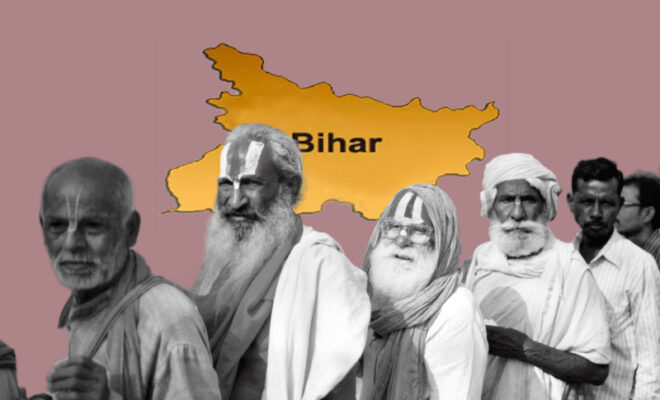Bihar Caste Survey Sparks Political Debate, Unity Over Division

What is most important for this country – education, jobs, healthcare, or castes? For some of our political leaders, it’s castes, to impress their vote banks.
The Chief Minister of Bihar, Nitish Kumar, has called for a meeting with all political parties to discuss the findings of a caste-based survey.
The survey revealed that the Backwards Classes and Extremely Backward Classes make up 63% of the state’s population. The largest social segment was the EBCs at 36%, followed by the Backward Classes at 27.13%.
The Scheduled Castes accounted for 19.65% of the population, while the Scheduled Tribes made up 1.68%. The “unreserved” category, which used to dominate politics, now comprises 15.52% of the population.
The opposition parties see this survey as an opportunity to attack the BJP’s coalition. The BJP, however, believes that the survey will not affect its social engineering model.
The Supreme Court will take up the matter on October 6, after the Bihar government published the caste survey data. The court had previously refused to stop the survey.
The Congress has welcomed the Bihar government’s move and called for a similar exercise at the national level.
It seems that the opposition is trying to divide the country in the name of caste census. You see, the Caste-based divisions have troubled our society for centuries, and we’ve been working hard to move beyond them.
Conducting such surveys can unintentionally deepen these divisions. This can lead to the risk of politicizing caste identities for electoral gains, which can lead to social unrest.
Rahul Gandhi’s call for a national caste census is also concerning. We understand that the composition of our population is vital.
Also Read:- The Unknown Conflicts Between Lal Bahadur Shastri And Mahatma Gandhi
But why are they focusing solely on castes? It can overshadow other crucial issues like education, healthcare, and economic development.
We should strive for an inclusive society that doesn’t discriminate based on caste, but their real requirements.
Moreover, the release of Bihar’s survey results has ignited political tensions. It’s essential to find a balanced approach that doesn’t exploit these divisions for political purposes.
Instead, we should focus on policies that promote social justice and equal opportunities for all.
Let’s hope that our current Bihar leaders and opposition alliance prioritize unity and work towards a harmonious society where caste doesn’t define our identities or divide our nation.



